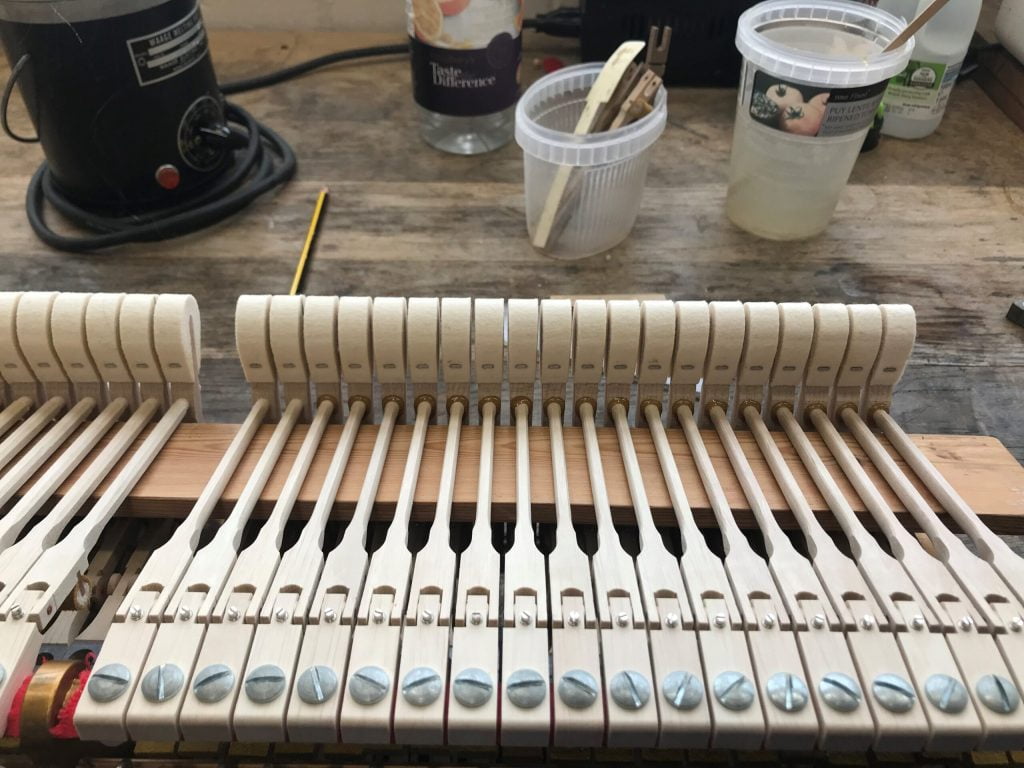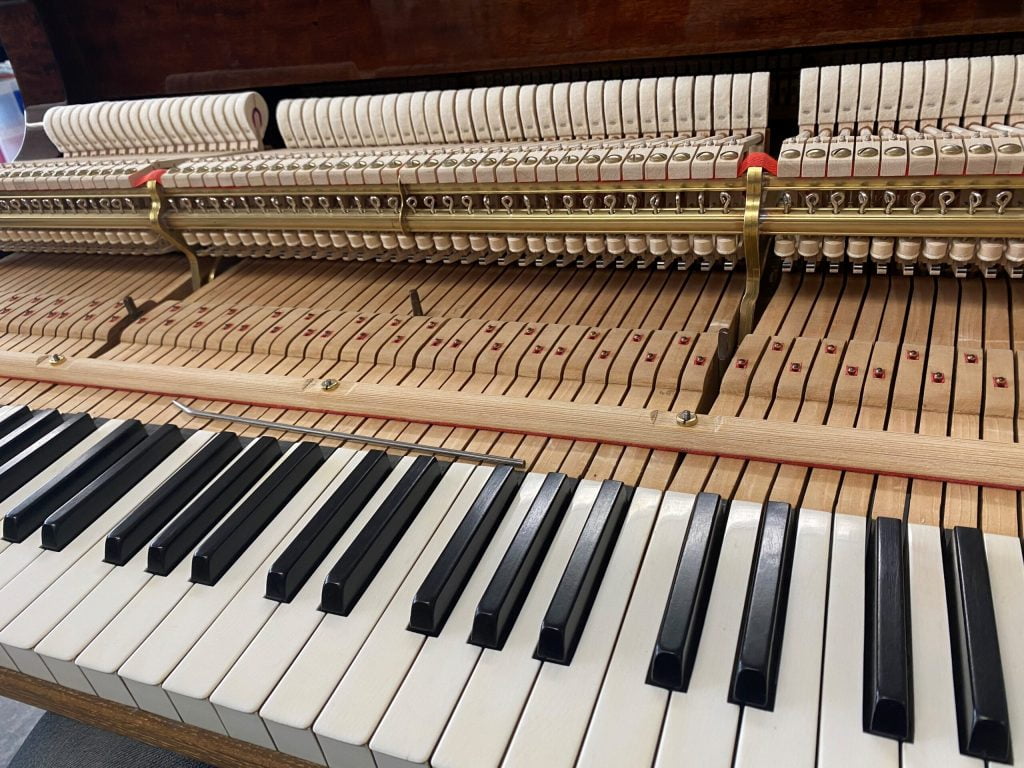All pianos require tuning from time to time and for a variety of reasons. Humidity, temperature, usage and general settling all play a part in determining how stable a piano tuning remains.
How often a piano is tuned is dependent on the usage of the individual piano. In domestic situations, it is good practice to have a piano tuned at least twice a year. Even if it does not get much use, a piano may go out of tune with fluctuations of temperature and humidity.
In the UK in winter when humidity is low, a piano can drop in pitch, and likewise in summer when humidity raises the opposite again can happen. In reality the more regularly a piano is tuned the more stable it will remain, so many concert grand pianos are tuned on a daily basis and may even be checked two or three times on the day of performance.


Toning or Voicing as it is sometimes called is also an important aspect in the maintenance of a piano. This is where we aim to achieve a balance in both dynamic power and brilliance across the whole keyboard. Any grand piano which is allowed to become too bright may also sound out of tune and uneven and ultimately will not be pleasing to play. There are other factors which have to be taken into account here such as the environment in which the piano is situated and the tastes and requirements of the pianist involved.
Pianists I have prepared pianos for include:
- Chic Corea
- Evgeny Kissin
- Mikhael Pletnev
- Leif Ove Andsnes
- Benjamin Grosvenor
- Emanuel Ax
- Maria Joao Pires
- Boris Berezovsky
- Joanna Macgregor
- Peter Donohoe
- Lang Lang
- Till Felner
- Martha Argerich
- Piers Lane
- Andras Schiff
- Worbey & Farrell
- Vladimir Ashkenazy
- Martin James Bartlett
- Rosey Chan
- James Kreiling
- Julius Drake
- Sach Puttnam
- Howard Shelley


